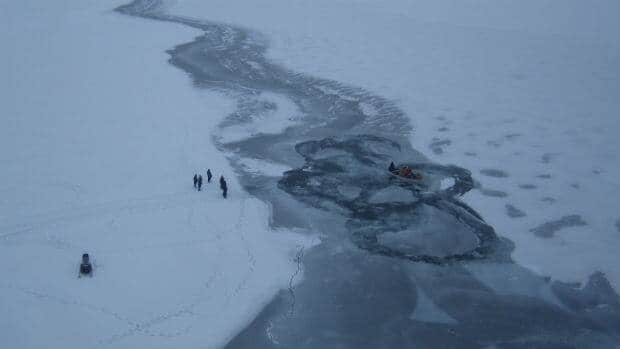Search-and-rescue inquiry 'better late than never,' says former Torngat Mountains MHA
A former Labrador MHA who took part in the search for the missing Burton Winters in 2012 says he hopes the search-and-rescue inquiry will help improve future operations.
Randy Edmunds, Liberal MHA for Torngat Mountains from 2011 until he lost his seat to the PCs' Lela Evans last year, said it's good the inquiry will finally be going ahead.
"Better late than never. There's so many of us that spend time out on the land and out on the ocean in this province," Edmunds told CBC Radio's On The Go on Tuesday.
"Accidents happen, people do get lost, and this inquiry I'm hopeful that we'll adjust protocols, adjust procedures and have a plan in the event that something like this happens again."
Details of the inquiry into Newfoundland and Labrador's ground search-and-rescue operations for lost and missing persons will be released this fall, the result of a process that began in 2018 after years of advocacy following the Burton's death.
Burton, 14, died after his snowmobile became stuck on sea ice near Makkovik, Labrador. He had walked 19 kilometres before succumbing to the cold. His body was found three days after he was missing — including two days before a military aircraft was dispatched to aid in the ground search.

"I think it was the missed communication, for lack of a better word, between provincial search and rescue and federal search and rescue protocols, and the confusion and the explanations that came after totally caused more confusion," said Edmunds.
"I'd like to say that this should not have happened, but it did, and some of the excuses we heard as to why they indeed couldn't come up, these are the things that need to be addressed and we need to have a plan that's ready to be implemented, designed for these types of accidents."
Former judge James Igloliorte of Hopedale was appointed to lead the inquiry last week.
Edmunds said there's no better choice than Igloliorte to take the lead.
"I think Jimmy Igloliorte is knowledgeable of the land, knowledgeable of the people and he has the insight of communicating with the people on the coast of Labrador," he said.
Edmunds said with Igloliorte at the forefront he hopes a new national and provincial search-and-rescue plan can be developed on the national and provincial scale, but most importantly on the local scale, where search-and-rescue members have pre-existing knowledge of the area.
"Local is the one I trust the most. These fellows know the land, they know the environment and they always come forward in situations like this, above and beyond what they're called to do."
Read more from CBC Newfoundland and Labrador

